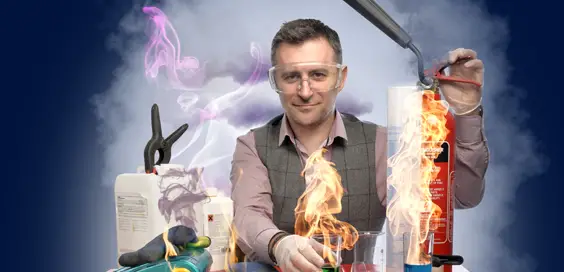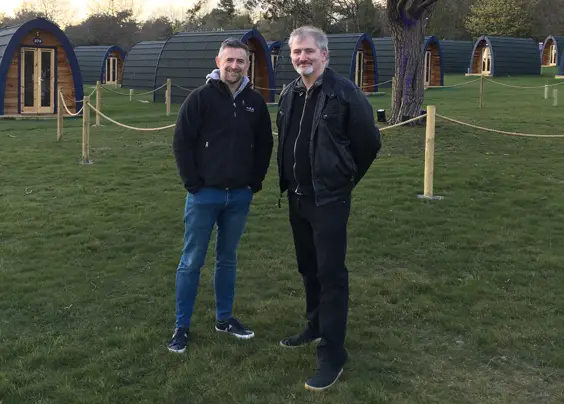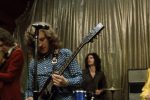An Interview with Stargazing Live’s Mark Thompson

By @RogerCrow
If you think Science is boring, Mark Thompson is here to change your opinion as he explores the strange and magical properties of matter with fireballs, fire tornadoes and explosive chemical reactions. Mark Thompson has been enthralling audiences for over 20 years with his fascinating journeys around the Universe. Now he’s turning his attention to things a little closer to home in his new stage show ‘Spectacular Science’. One of the presenters of the BBC’s ‘Stargazing Live’ he talks to On: Magazine about seeing Saturn, black holes and dinosaurs…
I love the BBC’s Stargazing Live, and it’s coming back soon isn’t it?
Yes, they’re doing a ‘one night only’ for the 50th anniversary of the Apollo landings.
What can we see in the night skies in April and May?
So, the moon will still be visible; obviously everyone can see the moon; everyone knows what it is. Over the next few weeks you can see the Lyrid meteor shower. So every year around this time of year, you get to see pieces of rock and dust which are falling in through the atmosphere, and as they do that they give off this wonderful characteristic glow, which we recognise as shooting stars, but they’re actually chunks of rock. And the great thing about it is you need no equipment. You can just go outside, look up at the sky, assuming it’s dark and clear; get on a sun lounger; make yourself comfortable, wrap up nice and warm, and you get to see shooting stars.
“All the big, bright constellations”
What was it that got you into astronomy?
I was about 10 and my dad took me along to my local astronomy society, and I saw Saturn through a telescope. For him that was enough really; he saw that and he didn’t really want to do any more. And for me that totally hooked me. I can still remember that first image I saw of Saturn. Which by today’s standards, the stuff you see from Voyager and the Hubble telescope is nothing in comparison to them, but the fact I saw it for myself was just incredible, and that’s totally what got me hooked on it.
The recent black hole news was amazing wasn’t it?
Yeah, it’s something we’ve theorised for a lot of years that they exist, but we’ve not had any direct evidence of them. I guess we’ve had inferred evidence because of the way they interact with surrounding parts of space, but to see a black hole for real… that black disc is the region called the event horizon, and if anything falls in there, you’re never going to see it again, and you’ll never see any information coming from it. The fact that it’s 55 million light years away… you’re seeing it as it was 55 million years ago. What really plays with your mind; if you’re an astronomer sat on a planet near that black hole looking back at Earth, if you looked at it today, you would see the Earth as it was 55 million years ago, which is just incredible. You’d have seen dinosaurs on the earth.
For me it’s Orion’s belt, but when star-gazing is there a point of reference you always look for?
Once you’ve done it for a lot of years, you kind of know your way around without using points of reference, but there are constellations like Orion and its belt; the Plough, which is always there, whichever time of year you look. Cassopeia, all the big, bright constellations. If you can find those, then you can find anything else. You can use them as guides around the night sky to find other stuff.










